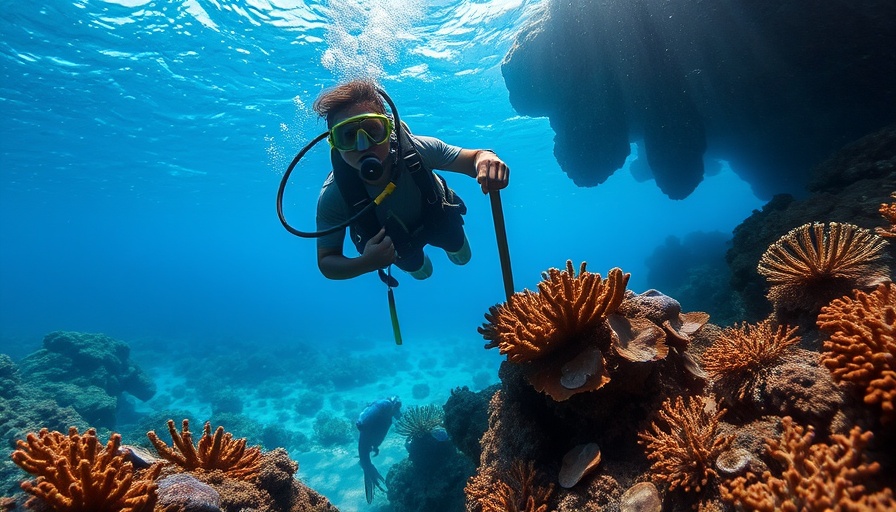
Coral Conservation: A Critical New Approach
As the world grapples with unprecedented environmental challenges, the plight of coral reefs has become increasingly dire. These vibrant ecosystems, often referred to as the 'rainforests of the sea,' play an essential role in marine biodiversity. The discovery of a beneficial probiotic strain, MCH1-7, offers a beacon of hope for declining coral populations in Florida, particularly in combating the deadly stony coral tissue loss disease (SCTLD).
The Science Behind the Probiotic
Discovered by researchers at the Smithsonian Marine Station in 2018, MCH1-7 was identified on a resilient coral colony that was immune to SCTLD outbreaks. This groundbreaking research highlights the potential of utilizing beneficial bacteria to protect vulnerable ecosystems. The primary focus is a compound produced by MCH1-7 called tetrabromopyrrole (TPB), which appears to aid coral larvae in settling in safe environments, thereby enhancing their chances of survival.
Innovative Treatment Methods
To explore the probiotic's effectiveness, researchers tested two application methods on great star coral (Montastraea cavernosa): injecting the probiotic into seawater in a weighted bag around the coral and applying a paste directly to affected lesions. The first method showed promising results, reducing tissue loss from disease by nearly 80% when compared to untreated corals. Conversely, the paste application yielded less impressive results, prompting further refinement of the treatment technique.
Long-term Benefits of Whole-Colony Treatment
What sets this study apart is the notable long-term efficacy of the whole-colony treatment. Over a 2.5-year monitoring period, the corals subjected to the probiotic intervention demonstrated remarkable resilience against disease spread. By applying the probiotic in a way that respects the delicate balance of coral ecosystems, researchers are paving the way for a sustainable solution to an urgent problem.
The Future of Coral Probiotics
Despite the promising results, researchers stress that additional studies are crucial for further developing treatments for various coral species. Addressing the SCTLD crisis is a complex endeavor that includes not just probiotics, but also broader conservation initiatives. The ultimate goal is to build a robust framework of care that encompasses environmental sustainability, education, and community involvement in conservation efforts.
Why This Matters to You
As eco-conscious individuals, understanding the significance of coral reefs directly impacts our connection to larger environmental issues. The decline of coral reefs affects marine biodiversity, fisheries, and coastal protection, ultimately influencing food security and climate resilience. By supporting initiatives aimed at coral restoration and learning about these innovative approaches, we can play a role in preserving these vital ecosystems for future generations.
Join the Conservation Conversation
The journey of coral reef restoration is just beginning, and your engagement is crucial. Whether it’s through education, funding conservation projects, or simply spreading the word about the importance of reefs, we can collectively make a difference. Let’s embrace these new insights into probiotic applications and how they can help safeguard our oceans while fostering a healthier planet.
 Add Row
Add Row  Add
Add 




Write A Comment